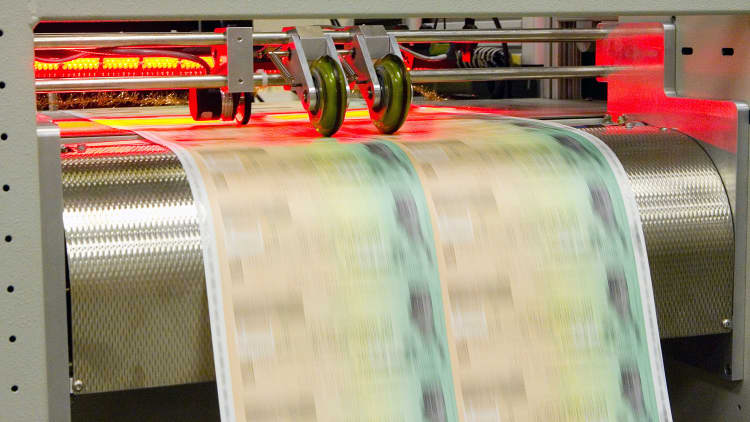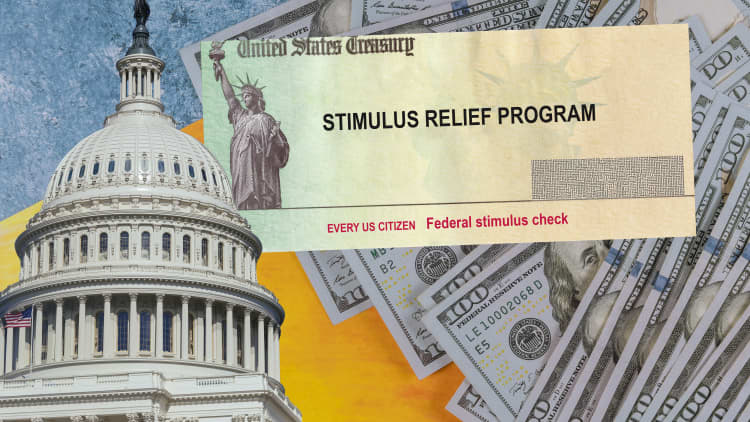A second batch of $1,400 stimulus payments has been sent, bringing the total number of checks issued so far to about 127 million for a total of about $325 billion, according to the Treasury Department, IRS and Bureau of the Fiscal Service.
Additional tranches will be issued in the coming weeks, the agencies said. Those payments will mostly be by direct deposit.
The $1,400 stimulus checks were authorized by Congress through the American Rescue Plan. The checks are up to $1,400 per individual, plus $1,400 per dependent, so long as they meet certain income and other criteria.
This new batch included about 37 million direct payments totaling almost $83 billion.
More from Personal Finance:
Using tax-deferred savings can help you get that $1,400 stimulus check
How to make sure you don't miss $1,400 stimulus checks in the mail
$1,400 stimulus checks could be garnished for unpaid private debts

About 17 million of those payments were via direct deposit. Those checks, amounting to more than $38 billion, were deployed starting Friday, March 19.
In addition, 15 million paper checks were sent as part of the second batch, representing about $34 billion, as well as 5 million prepaid debit cards, worth about $11 billion.
Those paper checks and debit cards also started to go out on March 19 and will continue to be sent in the coming weeks.
Most people do not need to take action in order to get a stimulus payment, the agencies said.

Questions have come up in recent days as to why some recipients of federal benefits — such as Social Security, Supplemental Security Income, Railroad Retirement Board and Veterans Affairs — have not yet received their payments.
Some federal beneficiaries who filed 2019 or 2020 tax returns or who used the IRS non-filer tool last year were included in the first two batches of $1,400 payments, the government agencies said.
For those federal beneficiaries who did not submit their information through those channels, the IRS is working to obtain up-to-date information from the corresponding government entities that oversee benefits to "ensure that as many people as possible are sent fast, automatic payments," the Treasury Department, IRS and Bureau of the Fiscal Service said.
Earlier this week, House Democratic lawmakers sent a letter to the IRS and Social Security Administration asking for a timeline for when federal beneficiaries will receive the money.
"Some of our most vulnerable seniors and persons with disabilities, including veterans who served our country with honor, are unable to pay for basic necessities while they wait for their overdue payments," the lawmakers, including Rep. Richard Neal of Massachusetts, chair of the House Ways and Means Committee, wrote.



